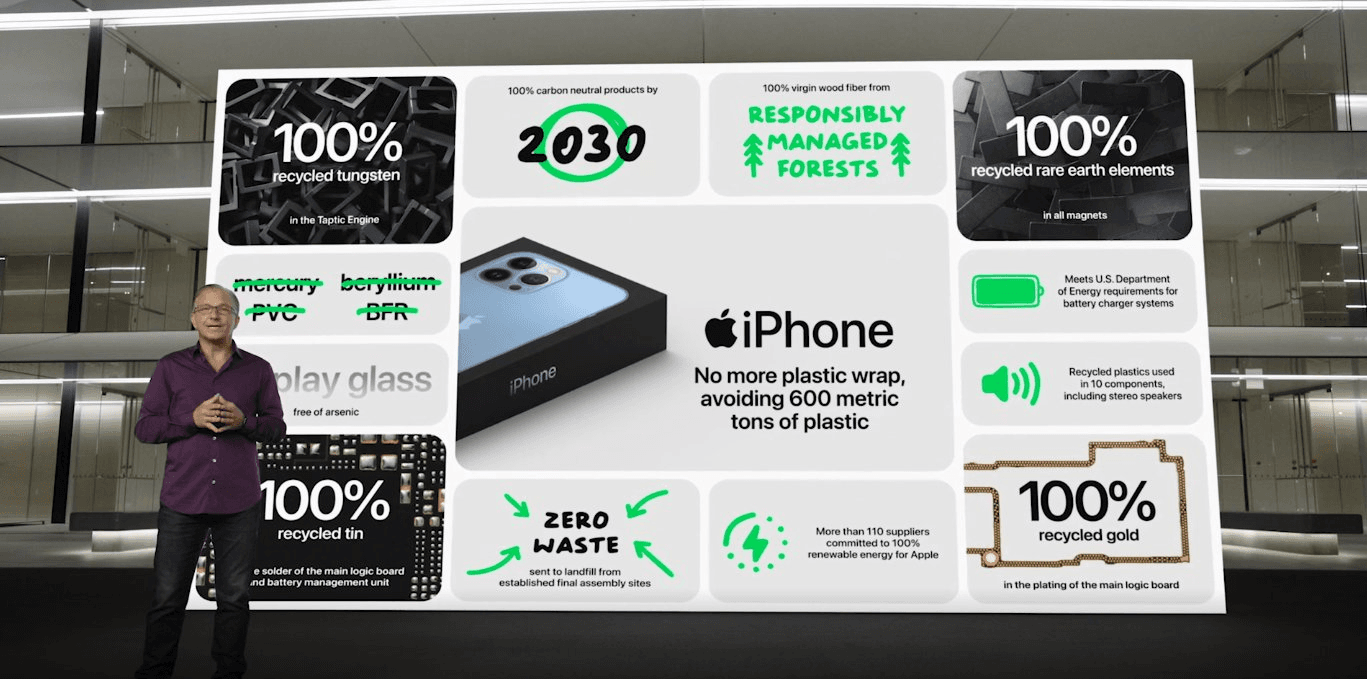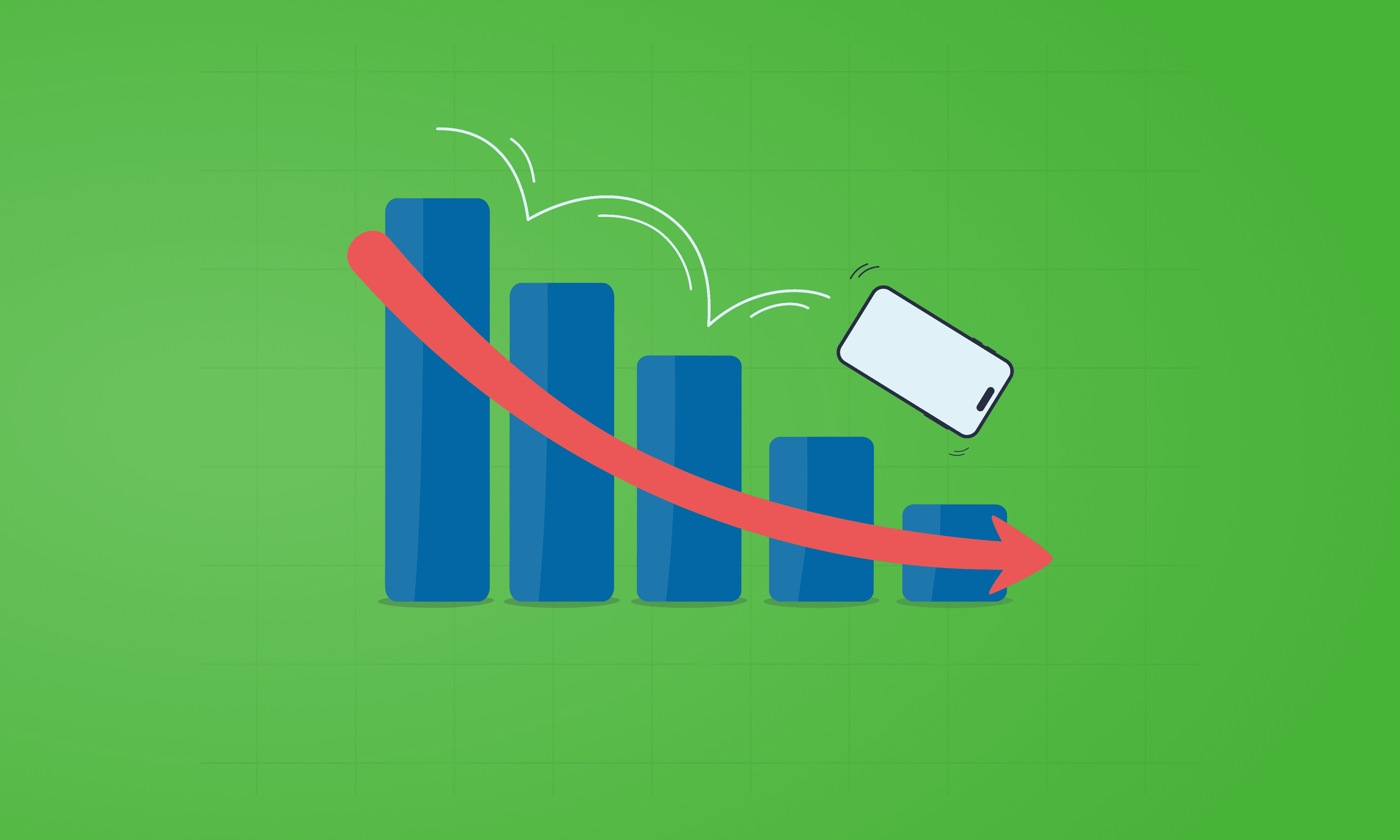Apple’s iPhone 13 environmental report breaks down sustainability efforts, carbon figures and what the latest data means for eco-aware buyers.

Written by Andrew Marchant, Marketing Manager | Privacy, Money-Saving and Parenting Advice
Last updated on 18 December 2025

We knew it would come eventually, the 1TB internal capacity, and with it the CO2 emissions of the very flagship devices are climbing up making the iPhone 13 lineup’s average footprint increase on the 2020 iPhones (factoring in Apple’s amended CO2 emissions for last year’s devices).
Taking into account the different capacities within the 4 core devices in the iPhone 13 range, there is a choice between 14 different models with an introduction of an even higher 1TB capacity and an increase of the lowest base capacity from 64GB to 128GB.
We’ve discussed at length that the higher the internal capacity, the greater the CO2 emissions. This move of completely removing the 64GB versions forever increases the footprint of the lowest emission's iPhone version just for the sake of storing an extra 14,000 photos. Which is a shame for people that might actually want the option.
The lower capacity versions appear as though they could have lower lifetime emissions but the trade off has obviously not been to reduce as many emissions as possible, otherwise Apple would have used these optimisations and maintained the capacity options.
Keeping a 64GB option of the iPhone 13 range may have seen total lifetime emissions in the 50-60KG range, but instead among the latest iPhone the environmental choice is still the iPhone SE 2020.
Apple reported that 100% recycled gold is now used in the plating of the main logic boards of the iPhone 13 series which adds to their already impressive use of recycled materials for 98% of the rare earth elements in the device, recycled tin in the solder, and 99% of the tungsten being used coming from recycled supply chains.
Apple continually reassesses and updates their models to leverage new information based on their own lifecycle assessment and as a result they re-estimate the carbon footprint of the previous models, which is often favourable for their previous generations of iPhones, and makes our content look incorrect. But we do our best to update our Carbon Footprint of an iPhone as Apple release refreshed information in their environmental reports.
Fits right in, right?
We dream of the day Apple release an environmentally certified device! They are recycling many old devices, sticking to the same chassis, reusing components. Whilst Apple want to have all their products to be carbon neutral by 2030, this is 9 years away and they could if they wanted to put the millions of dollars they spend on research and development (and twisting the arm of Twitter) into delivering an actual environmentally friendly version, not just leaving it to Fairphone.
Wouldn’t that be great for an actual green initiative!

Digicam trend drives 979% spike in iPhone 4 demand and here's what you need to know before using one.

The iPhone used to define innovation. Now every new model feels the same. Is Apple’s story running out of pages?

See which Apple, Samsung, and Google phones hold their value best over the first and second year on the market.